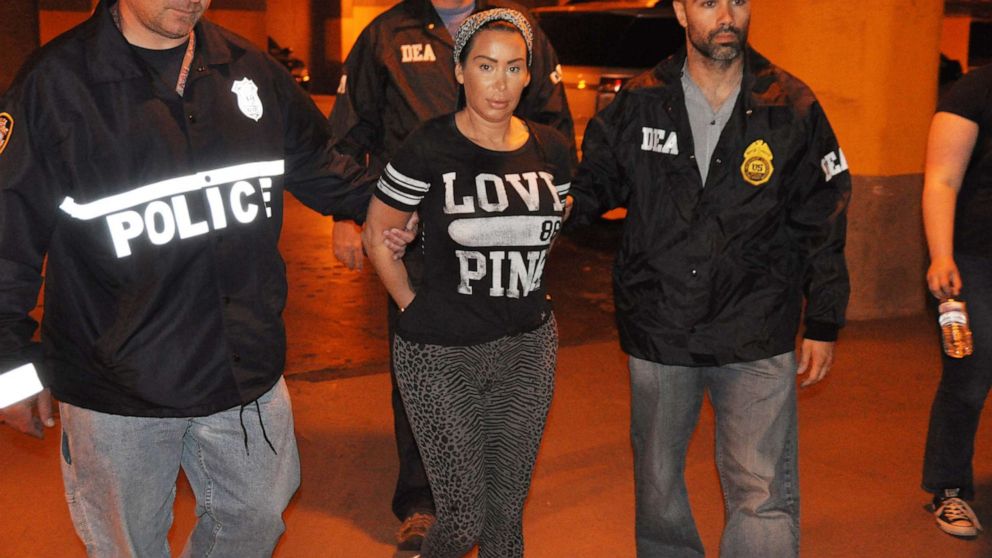How real 'Hustlers' got caught: 'They were vampires ... my blood was the credit card'
"Hi, remember me? I’m Karina."
That was a text message Dr. Zyad Younan received in late 2013.
The wealthy cardiologist from New Jersey had met an attractive woman one night at a restaurant six months earlier when they were both out separately with friends. They chatted briefly and exchanged numbers that night. But Younan hadn’t heard from her until now, months later.
So, he said he was a little skeptical.
"I said, 'Well, can you remind me?’" Younan told "20/20." "She was like, 'Oh we met at that restaurant. … I’m studying to become a nurse, and I really am looking for a nice guy and I would love to go out to dinner with you.’"
Watch the full story on "20/20" TONIGHT at 10 p.m. ET on ABC.
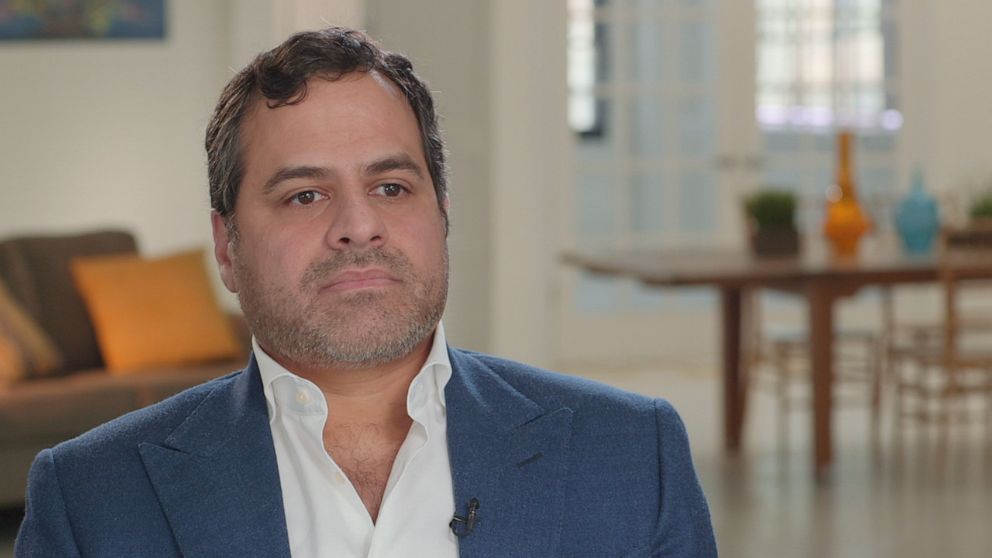
Younan, who has never been married and has no children, said he agreed to take her out to dinner and arranged to meet Karina at a restaurant in New York City’s West Village neighborhood.
What he didn’t know, as Karina Pascucci told “20/20,” was that although she had indeed met Younan previously, the person actually texting him about dinner was Samantha Barbash, a former stripper who was running an elaborate scam, along with another former stripper named Roselyn “Rosie” Keo and their team of women, in the wake of the 2008 financial crisis.
Over texts with Younan, Barbash was posing as Pascucci, one of her recruits.
"Samantha had texted him…using my picture," Pascucci told "20/20,"
During the Great Recession, the clientele at New York City’s gentleman's clubs stopped spending like they used to, and these women started looking for new legitimate ways to make money.
Authorities said Barbash recruited beautiful club dancers and workers to lure wealthy men back into Manhattan’s gentleman’s clubs, where they would get their "marks" to spend as much money as possible and run up enormous credit card charges. Acting essentially as club promoters, the women would walk away with a cut of what the men spent -- all perfectly legal.
But it was under the guise of promotion that the women’s scam took shape and crossed the line into something illegal.
Barbash arranged for Pascucci, who worked as a waitress and a massage girl at one of the clubs, to go on the date with Younan. Pascucci said she was given a storyline to follow and was coached to say she was a nursing student.
By agreeing to this dinner date in 2013, Younan had just set himself up.
A dinner date with a bizarre end
On the night that they had planned to meet up, Younan said he texted Pascucci to let her know he had arranged for a friend and his wife to meet them for a double date.
"And she was like, 'OK, you know, I’m running a little late. You know, I wanted to spend some time alone with you,'" said Younan. "And I was like, 'Just, don’t worry, just come.' So she showed up over two hours late."
When Pascucci finally arrived, the other couple was finishing up their meal and they left shortly after. Younan and Pascucci stayed and shared some wine. Then Younan said he excused himself to go to the men’s room. When he returned to the table, he drained the last few sips of wine left in his glass.
"I started feeling warm, flushy and [my] vision was a little blurry and cloudy,” Younan said. “I really didn’t think twice…and then I don’t remember much after that."
The next thing he knew, Younan said he was waking up the next morning in bed alone and had no idea what had happened after the restaurant. He said Pascucci had left him a note thanking him "for an unbelievable time."
“That could happen when you drink too much alcohol. It's called blacking out," Pascucci said. “He was very intoxicated.”
When Younan texted her asking what had happened that night, he said she told him that he had too much to drink but that they "had a great time together" and she wanted to see him again.
Younan decided to meet up with Pascucci a second time, and then, he said, "I went to the bathroom and then I signed the bill and then I don’t remember the events."
Again, Younan said he texted Pascucci the next day, who told him once again that he had too much to drink but that they had a great time together. On both occasions, Younan said that he woke up with his wallet, his credit card and his bearings, and didn’t suspect anything.
"I was naïve and foolish," Younan said. "I believed her, I trusted her. … I mean who hasn’t done a stupid thing or two for a beautiful girl in life."
Younan agreed to a third date with Pascucci.
"He had texted me almost religiously and I kind of felt bad," Pascucci said. "And he said he had gotten concert tickets."
For their third date, Younan took her to a Van Morrison concert at Madison Square Garden. Right away, he said there seemed to be an issue.
"All she kept asking was for wine," Younan said. "But at Van Morrison concerts, once the concert starts, they don’t serve alcohol."
"That was a dreadful night," Pascucci said. "There was no alcohol that night, so I actually had to talk to him. … Sometimes you get tired of pretending and fake laughing all night, so that was rough. … It's emotionally draining to do this."
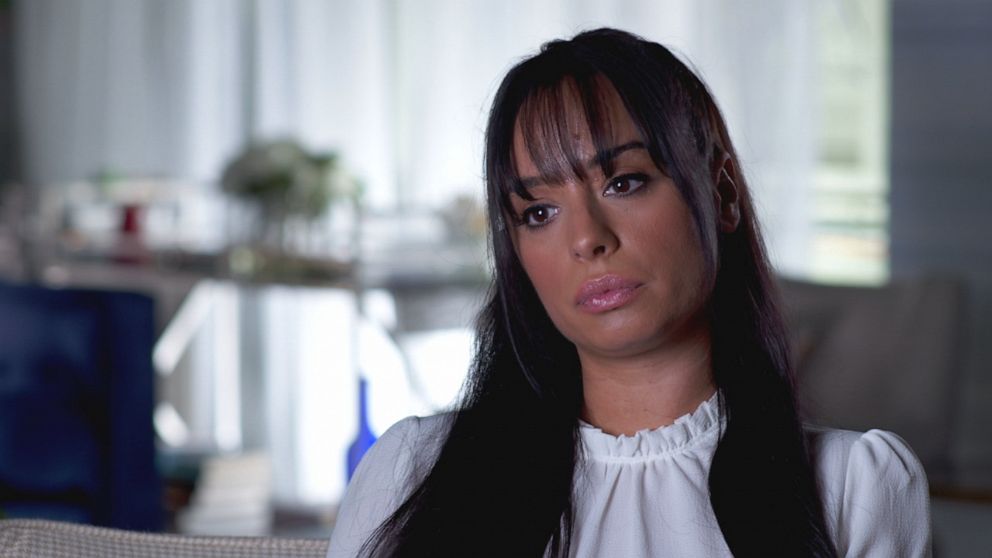
After the concert, Younan said they decided to go out for drinks with some of Pascucci's friends. He said he remembered drinking the last half-glass of wine at the end of the night. But once again, the next thing he knew, he said he was waking up in bed alone with little memory of the night before. But he found a voicemail that gave him a clue.
"There was a message left by American Express," he said. "They said, there was excessive charges on your credit card. It was close to $100,000…on a place called Robert's Steakhouse. 'Can you please call us?’"
While the charges were from Robert’s, the steakhouse is affiliated with Scores, a famous gentleman’s club in Manhattan’s Chelsea neighborhood.
“I had never been to Scores,” Younan said. “I had never had an account with Scores. I had never stepped foot into Scores… and American Express knew I had no history with that vendor.”
"[American Express] said it was three separate nights, and then I put it together… It was every time I went out to dinner with her," he continued. “And I even saw the receipts. They were all forged receipts and they weren’t even my own handwriting.”
Younan said he confronted Pascucci, who "turned immediately red" when he asked her about the charges and then she tried to blamed it on other people in her circle.
"And I told her, 'You're nothing but a thief, you're nothing but a swindler... I don't want to see you, I don't want to talk to you ever again,'" he said.
Pascucci told "20/20" she was "definitely apologetic" after Younan confronted her.
"I definitely 100% felt bad, because I didn't even know his bill was that high until I had found out from [the] Scores' manager and from Samantha," Pascucci said.
American Express launched an investigation and agreed with Younan that the charges were fraudulent. But it turned out that Scores had Younan on its surveillance footage inside the club, which Younan said he didn’t remember setting foot in.
What Pascucci, Rosie Keo, Barbash and others involved in the scam didn't know was that by the time Younan was disputing the Scores charges, the New York City Police Department and the Drug Enforcement Administration were already onto them.
Agents and detectives had interviewed other victims and suspected the women were luring and then drugging their marks. Another woman, whose name has never been revealed, had given investigators a detailed road map.
The sting operation that almost brought the women down in one night
In November 2013, the same month that Younan took Pascucci on those three dates, the NYPD and DEA set up a sting operation at the Gansevoort Hotel, a luxury hotel in Manhattan’s trendy meatpacking district. They rented a room, wiretapped it with audio and video recording devices, set up a surveillance shop next door and had an undercover DEA agent pose as a rich man sitting alone at the hotel bar in order to make him an attractive target.
"We did our investigation ahead of time...so we knew they were going to come to this...high-end hotel bar," the undercover agent told "20/20."
On that night, after about an hour-and-a-half of the undercover agent waiting at the bar, one of the women in on the scam approached him, asked him if he wanted to party and then accompanied the agent to his hotel room.
Unbeknownst to her, the room next door to his was full of detectives and DEA agents watching and listening to everything.
The undercover agent said he and the woman had bought drinks at the bar and she brought them up to the room. He knew “that these drinks would possibly be drugged," he said. Then the undercover agent said he pretended to pass out as if the drug cocktail had been too strong for him.
Pascucci, who was downstairs, said Keo called her and told her to join her in the room.
"I actually wasn't supposed to be there that night," Pascucci said. "I was home in my apartment by myself sleeping, and Rosie called me...she told me to wait downstairs and she went up [to the room] with another girl -- another dancer."

When she walked in, Pascucci said she saw "a gentleman on the bed passed out."
Surveillance video and audio obtained exclusively by ABC News captured the frenzy.
"They were trying to wake me up using various methods," the undercover agent said. "They grabbed a beer from the hotel fridge...and they had me drink that."
One of the women is heard asking, "Did you give him something?" Another woman is heard saying, "I gave him a bump of blow and he fell asleep. He was like dead." And then another one is heard saying, "I've never seen anyone go to sleep after a bump."
"It just didn't make sense to me," Pascucci said. "I had went up to him and I had taken his pulse...he was breathing completely normal...I knew he wasn't blacked out. I knew he wasn't sick. His heart was fine."
The undercover agent was acting the entire time, but the other agents listening in the room next door started to worry that he had actually been drugged.
"There was a point where...the girls had crawled on the bed [and] they had a wet cloth and it looked like they put the cloth over his mouth," said DEA Agent JC Mannick, of the lead investigators on the case.
"I had actually several times given the order to move in," said Eric Triana, the assistant special agent in charge of the DEA’s New York field office, who oversaw the probe. "And it was only a split second [later] that [another investigator] would stop them, stop me, and say, 'No, no, not yet, he just gave a signal.'"
The undercover agent said he shook his leg to let his counterparts next door know he was fine. Meanwhile, the surveillance footage showed the women seeming to grow more agitated. They started slapping his face to try to wake him up.
"We were just hoping the girls would take his credit card and leave and go swipe it," Detective Danny Politoski said.
Until that moment, investigators didn’t realize that these women needed to get the men into a strip club, where they would be recorded on the club’s cameras, so there could be no doubt they were on the premises when their credit cards were charged.
Keo told “20/20” that the scam usually worked because a lot of the men they targeted "had wives and high-power positions."
"They didn't want any problems. They just wanted to pay the bill and move on," Keo said. "We would tell [our marks], 'Listen, it's a losing battle. Just give it up. We have you on camera.'"
But the women couldn’t rouse the undercover agent. The DEA’s surveillance video inside the hotel room showed the women, in their desperation, started to get physical with the agent, grabbing and groping him, trying to get him on his feet.
"I felt like they were like vampires hovering over me," the undercover agent told ABC News. "My blood was the credit card. They needed to get me to this strip bar with my credit card to do their business."
"It got a little intrusive," Politoski said. "It was getting to the point where they weren't leaving...they just wanted him to get to this club...so we kind of came to the decision that this is going to go on all night."
Triana then had some agents pose as hotel security and knock on the door. When they came in, they asked the women if there was a problem and if the man on the bed needed an ambulance. The women told them no.
"They had no regard for his health -- if he was dead or alive," Politoski said.
In the end, the agents were not able to make any arrests that night because the women never ran the agent’s card. But Triana said the operation wasn't a failure because they had gathered incriminating evidence.
They had recorded these women talking about drugging their mark. Detectives had also retrieved the undercover agent’s glass that held the spiked drink and sent it to a DEA lab to find out if the women were drugging their marks and with which substances to cause memory loss. This was critical to their case.
According to detectives, the lab determined the women were using a mixture of MDMA, commonly known as “Molly,” and ketamine, or "Special K," which is used for general anesthesia.
The doctor decides to help law enforcement bring down the scammers
In April 2014, Scores sued Younan in an attempt to force him to pay the $135,000 in bills charged during those three nights. The lawsuit prompted screaming headlines in the New York City newspapers.
But the women had picked the wrong mark when they targeted Younan. He was ready for a fight and refused to pay for charges he said he never authorized.
However, when NYPD detectives contacted him after running down lists of men who had high New York City strip club bills, Younan said he was skeptical, thinking he was being set up by Scores’ pretending to be law enforcement.
"I ID’d myself as a detective at the NYPD [and told him] we're investigating a case of fraud credit card charges," Politoski said. "He was definitely apprehensive at first. … I asked him, 'Can we meet, you know, we’ll meet in a public place.' We agreed upon a hotel lobby in New Jersey."
"At this point in time, I don’t want to talk to anyone, and I’m like, 'You know, who’s calling me?'" Younan said. "I just didn’t want to deal with anyone at that point."
When Politoski and Mannick finally met Younan for their first interview, Politoski said it took a while for Younan to open up to them. But once Politoski explained that they had heard stories like his before, he said, "that made him feel better."
"When I told [Politoski] my story...he believed me right away," Younan said. "[We] started working together and trying to help with the case."
Younan said he shared with detectives the various text messages, emails and voicemails he had exchanged with Pascucci and Scores.
Weeks later, Younan’s name was plastered across the New York City tabloids when Scores filed a lawsuit against him. Yet, he continued to keep quiet about working with law enforcement, hoping they would soon take action.
When the crime ring came to an end
Within a few months, the authorities had enough evidence to make arrests.
In June 2014, Keo, Barbash, Pascucci and a fourth woman, Marsi Rosen, were arrested, along with Carmine Vitolo, the manager of a different gentleman's club, RoadHouse NYC, in Queens.
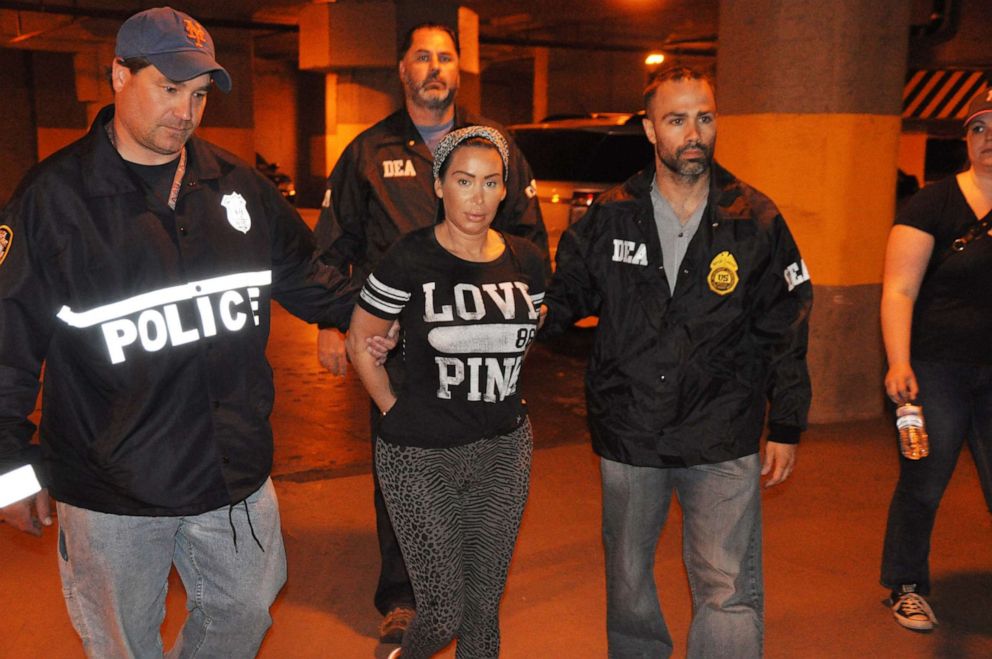
Barbash, Keo, Pascucci and Rosen were charged with conspiracy, grand larceny and other charges.
"The day of my arrest, they come to my house early in the morning, and I was taken in handcuffs," Keo said. "It's like, 'Oh my God, the whole world -- everybody -- knows what I did.' ... All types of emotions are running through you. ... I think I was shocked."
Pascucci said she was at work at a clothing store in Manhattan when three DEA agents showed up to arrest her.
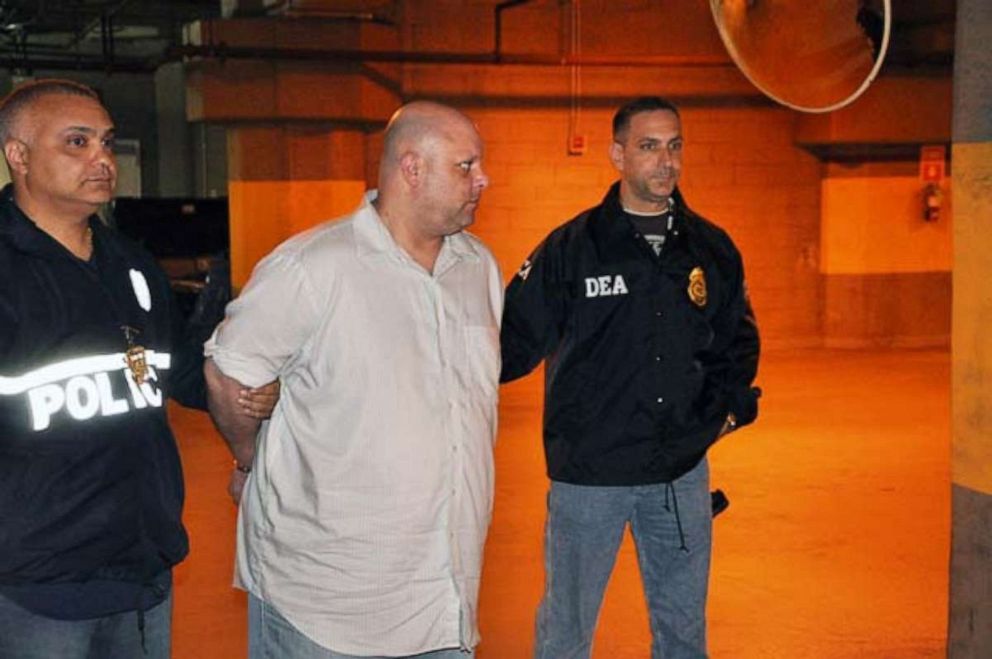
"So when they had come to get me -- to apprehend me -- I was really surprised," she said. "When you get arrested, the whole world goes black and everything just goes silent."
Eventually, the four women and Vitolo all accepted plea deals. Barbash pleaded guilty to conspiracy, assault and grand larceny in exchange for five years' probation. Keo pleaded guilty to grand larceny and assault.
Vitolo pleaded guilty to petit larceny and was sentenced to three years' probation.
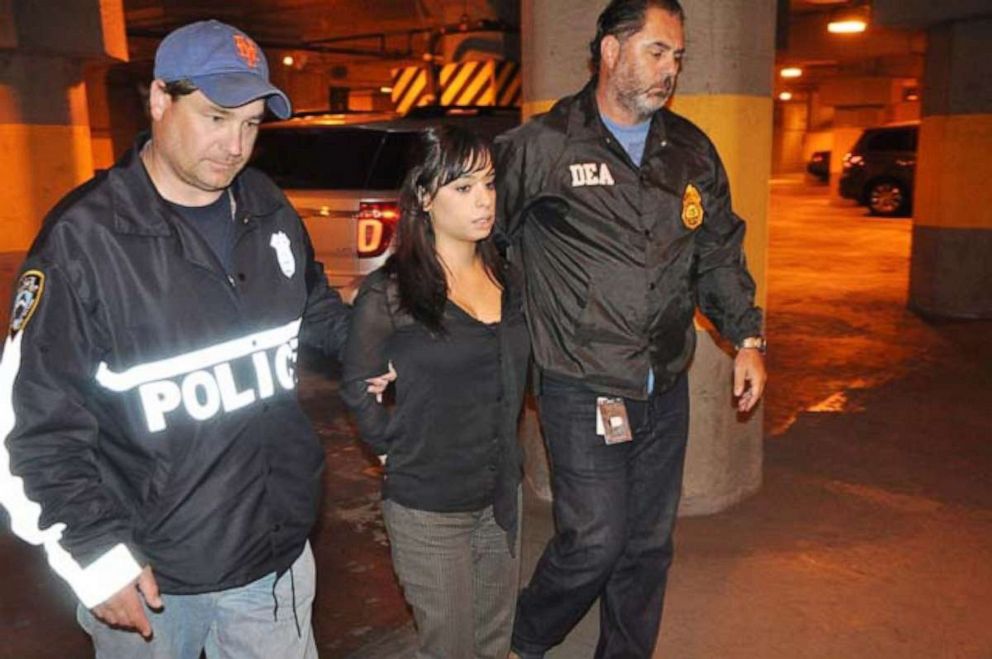
Pascucci and Rosen pleaded guilty to conspiracy and grand larceny and served 16 weekends in New York City’s Rikers Island jail complex and five years probation.
"I definitely feel responsible for just luring people in and, you know, manipulating them," Pascucci said.
In July 2014, Younan countersued Scores, alleging in his lawsuit that he had been drugged and should not be responsible for charges he never authorized, as well as that Scores and the women had later defamed him.
Almost four years later, in January 2018, a judge ruled in Younan’s favor on not having to pay the six-figure Scores tab, ruling that the charges were the result of “criminal conduct” on the part of Barbash, Keo, Pascucci, Rosen and other women involved in the scam. Younan’s lawsuit against the strip club and the women was dismissed.
None of the clubs where the scam took place were charged. Scores declined repeated requests for comment from ABC News.
There is another element to this saga, though.
Keo, Barbash and Pascucci’s true story was the inspiration for the new movie "Hustlers," starring Cardi B., Jennifer Lopez, Constance Wu, Keke Palmer and Lili Reinhart. “Hustlers” opens in theaters on Friday.
"I’m sure in the movie they’re all going to be like super heroes. The truth is, in this story…these women were running a criminal enterprise -- period," said New York Daily News columnist Linda Stasi.
Barbash, who also says she's working on a book, declined ABC News' request for an interview and declined to comment except to say she wanted to tell Keo, "Make the money, don't let the money make you." Barbash told the New York Post in April that she plans to sue STX Entertainment, the production company behind "Hustlers."
Keo said she is working on a memoir to tell her story in her own words.
“People make mistakes,” she said. “What you do does not define who you are. It's what you learn from it. It's what you do after it. It's who you become later on.”
Pascucci is working on her associate’s degree in criminal psychology and also wants to write a book about her experience at a later date.
Reflecting on it now, Younan said the ordeal has affected him "tremendously."
"I'm not a trusting as I used to be. ... But yeah, I always stand up for what's right...and someone had to stand up and stop it," Younan said, "They need to be accountable for their responsibilities and their actions."
